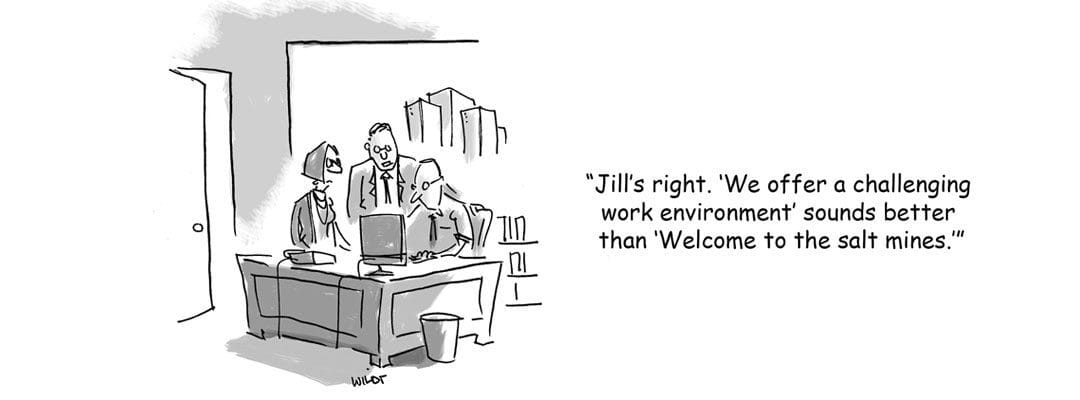- The Break Room
- Posts
- Damned if you do, damned if you don’t
Damned if you do, damned if you don’t
Why your workplace needs a point of view

The worst thing a brand can be is indecisive (which is not the same as making a decision and then changing your mind.)
Indecision is waffling back and forth without committing, until the decision point has passed and you’re stuck committed to nothing (and everything).
Indecisive brands are forgettable. Nice, but forgettable.
Indecision can sound like:
👉 Let’s cast a wide net.
👉 Let’s just run with both.
👉 Let’s punt that to leave room for flexibility.
Here’s my take on decisions:
All decisions have consequences. Whether they’re good or bad is up to how you view them. People are indecisive when they want to delay those consequences for fear that the consequences will be bad.
👎 Lost revenue.
👎 Lost confidence from the board.
👎 Lost confidence from employees.
👎 Bad PR.
The truth: you’re damned if you do, damned if you don’t. So why not embrace your competitive advantage?
Budweiser is the perfect example of this.
When Budweiser worked with Dylan Mulvaney, they had an opportunity to lean into inclusion as a competitive advantage. Budweiser has been a loud and proud sponsor of Pride events for years. Instead, they waffled.
They alienated the LGBTQ+ community by walking back their support of Mulvaney, and they alienated conservatives by not immediately decrying the partnership.
Lose-lose.
By NOT making a decision about what they stand for, Budweiser lost the plot, and their competitive advantage.
Decision fuels your employer brand
I’m here to tell you: the upside for decisiveness is worth this risk.
🎉 Clearly defined market.
🎉 Competitive talent advantage.
🎉 More PR and earned media.
🎉 Employee confidence.
It’s a trap to think you are for everybody, especially as a brand.
No, you don’t want to alienate potential buyers, but it pays to be clear about what you stand for (and against).
But where to begin?
Take a look at your workplace policies.
👉Remote, Hybrid, Onsite - where can your employees work?
👉Leave policies - how many weeks of parental leave are you offering? Are you gating when an employee gets access?
👉Vacation - do you offer unlimited PTO? Do you require a minimum number of days off?
👉Side hustles - do you encourage employees to build their own brands and skillsets outside of their “day jobs”?
👉Alumni - how do you treat employees who leave?
Some companies to note
Atlassian - Annie Dean and Atlassian are championing “Work from anywhere.” It’s a clear differentiator in a competitive field that’s mostly hybrid and onsite.
Arrows – check out their career page in Notion. They’ve thoughtfully defined who they are, what they aren’t, and how to set your expectations for working there.
Hubspot - Hubspot has long been known as a company that encourages employees to build their own side hustles. They clearly define who they are and what you can expect on their careers page.
Ashby - what I like about Ashby is they clearly lay out why the heck they exist in a manifesto-type About page. Check out their job descriptions for a personalized touch that most companies miss: direct content from the hiring manager.
How do you get there?
There’s another post required about how to get the buy-in you need to convince your founder/CEO/exec team to be decisive in how they set up their employer brand.
BUT!
If you are in a position to influence decisiveness about your brand: it’s not too late to start.
Who else is doing decisive employer branding right?
Reply